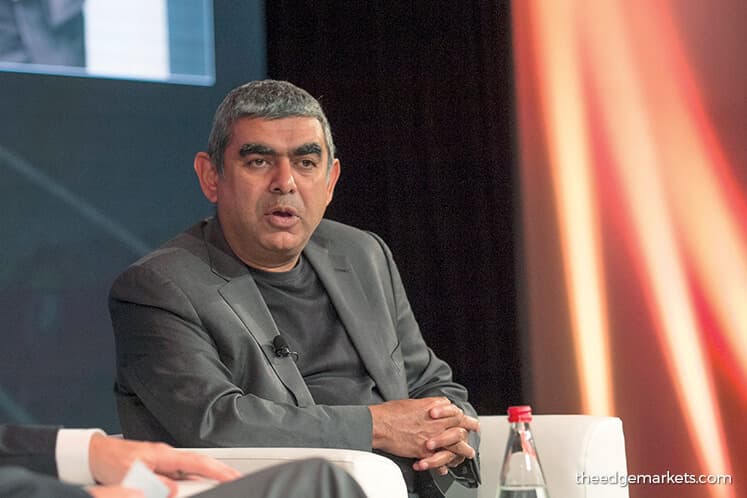
This article first appeared in The Edge Malaysia Weekly on June 26, 2017 - July 2, 2017
THOUGH political events are shaking up the world and creating uncertainties, technology is the mother of all disruptions, sparking both excitement and fear, depending on whether you are the disrupting entity or the one being disrupted.
One question that arises at the fear end of the spectrum is the displacement of workers, an issue that was raised at the WEOY forum that drew more than 1,500 entrepreneurs from across the globe this year, including past and present EY country winners.
There is no doubt that artificial intelligence (AI) and the use of automation are on the rise and a recent survey by a human resource consultancy found that one in six employees in Singapore, Malaysia and Hong Kong fear that automation will take away their jobs. The reality is that, ready or not, that fear will soon come true.
“This isn’t about whether the workforce doing basic labour is going to be displaced. This is about everyone. No matter how sophisticated your work, if you’re essentially pulling a lever, however complex, if you’re doing the same job this week that you’ll be doing next week, someone like me is going to come along and think, ‘I bet I can automate this [and make it] cheaper, faster and better’,” says Dr Vivienne Ming, one of the speakers at the WEOY forum this year.
The theoretical neuroscientist and entrepreneur’s career is centred on inventing machine-learning technologies, and researching and writing about their impact.
The notion of a “worker-less workforce” in the future is not far fetched. Indeed, it may happen sooner than expected.
In fact, according to Indian IT giant Infosys CEO Vishal Sikka, in recent years, there have been “breathtaking advances” in AI, which he describes simply as the science of making machines do things.
He cites Google’s AlphaGo as an example. The AI developed to tackle Go, the world’s most demanding strategy game, has been defeating the world’s best talent in the game. After taking down world champion Lee Sedol last year, AlphaGo went on to win against China’s top-ranked player Ke Jie in May this year. It also overcame a team of five top players in the same week.
Vishal also highlights how robots can make an omelette after watching a video of someone doing it. “The point here is not about using a robot to make an omelette but about how a robot has the capacity to learn. More sophisticated techniques are becoming possible to be learnt by machines,” he says, adding that these technologies are going to develop exponentially in our lifetime.
Hence, without a doubt, a whole category of jobs is going to become obsolete, says Vishal, who has been steering Infosys into newer areas like AI and automation. He adds that these new technologies do not just present challenges but also opportunities.
“All these [new technologies] create opportunities for us. For people who have an entrepreneurial mindset, there’re opportunities in building these systems. We have to understand that AI is not falling from the sky; it is not some god giving it to us. People are writing AI software and we can all learn to do the same thing. Building, maintaining and integrating AI systems — that’s going to be a huge opportunity in the near future,” says Vishal, who has a PhD in Computer Science.
“Our brains are wired in a way that we think about things in terms of the past, so we all get worried about the jobs of the past. [But] of course they are going to go away. They have been going away and they will go away even faster. But a completely new category of jobs is coming up and there is a shortage of people for them.”
So, a shift in mindset is important, says Vishal, because AI technology will get to a point where any problem that can be precisely articulated and described can be automated.
“Like the father of AI, John McCarthy, said, ‘Articulating the problem is half the solution’. So, anything that can be precisely articulated and mechanically classified is going to be out of the picture. In such a situation, what is the human frontier? If you think about it, it is entrepreneurship, it is innovation. It is looking at the world around us, this room even, and seeing what is not there.
“What can I bring that will make it [the world] better? That essence of entrepreneurship is what the future is about ... we have to get to a point where all of us are entrepreneurs. I don’t see any way around that. [Because] we are going to get to a point where machines will be able to do everything if we look backwards. We have to be the ones to look forward,” he stresses.
The Edge is the media partner for EY Entrepreneur Of The Year Malaysia 2017
Save by subscribing to us for your print and/or digital copy.
P/S: The Edge is also available on Apple's AppStore and Androids' Google Play.